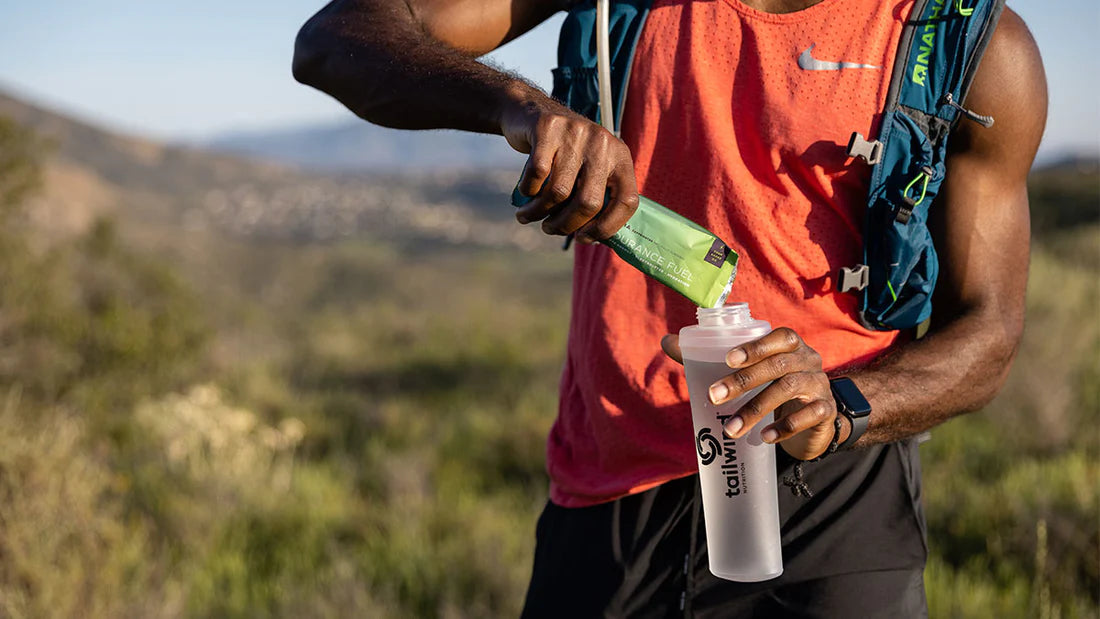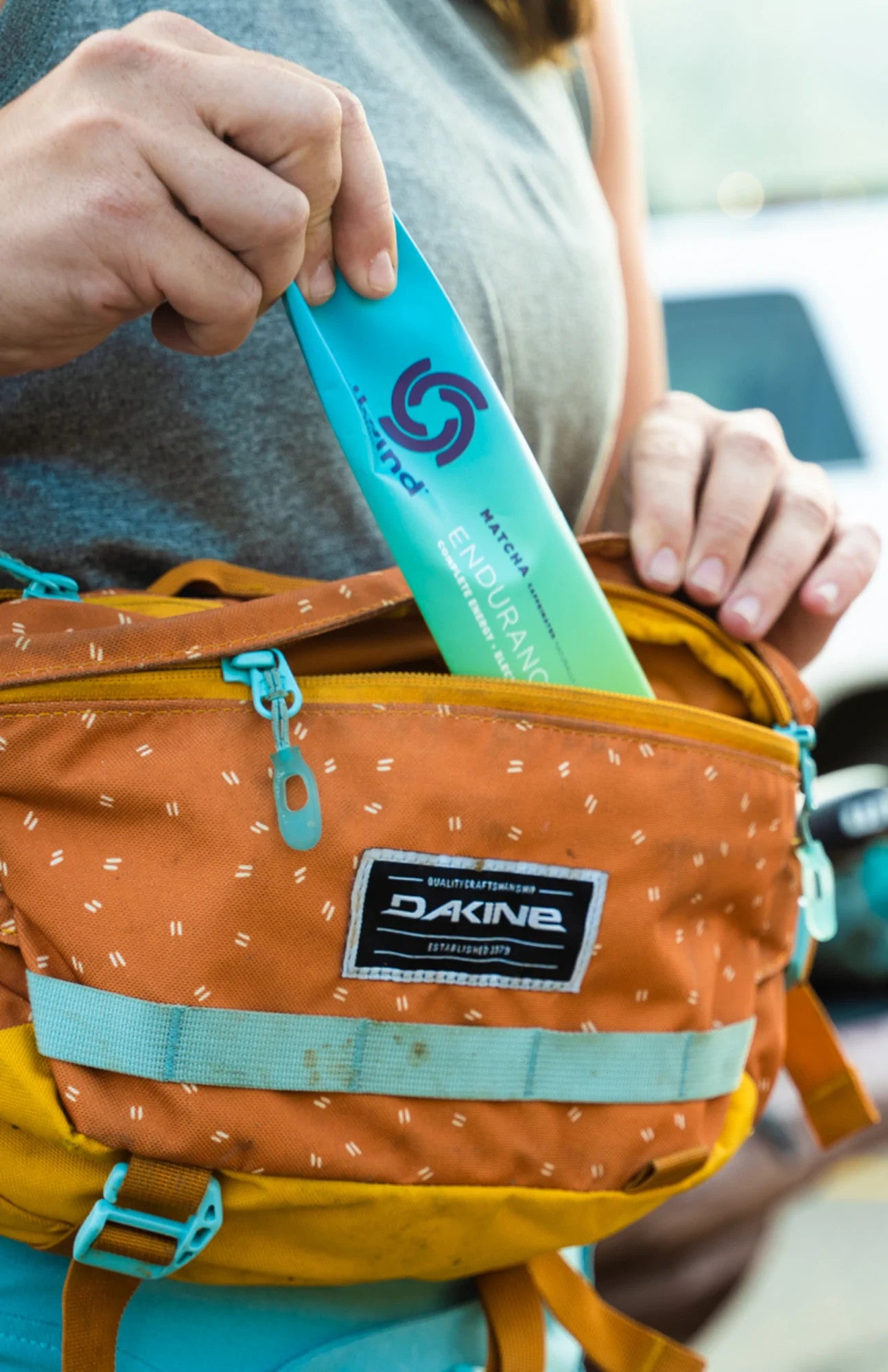STAYING HYDRATED WHILE RUNNING | HYDRATION MANAGEMENT TIPS
0 Comments
Whether you’re racing or just going for a run through your local area, several things are going through your mind. Not only do you have to pay attention to your breathing and strides, but you also must keep your mind focused on the task. If you’re running on roads or sidewalks, you’ll also have to stay aware of traffic and other people. With all of that going on, it’s easy to forget about long-run hydration.
While hydrating for a run sometimes feels like an afterthought, it truly should be your top priority. If you fail to drink enough water, you can negatively impact your performance. In some cases, you could even suffer injuries.
For runners, neither of those outcomes sounds appealing. Therefore, you must understand how you can stay hydrated whilst running. We recommend that you put together a plan for drinking water and running to ensure you get enough fluids.
Sounds simple enough, right?
Unfortunately, a lot of runners struggle to find the perfect running and hydration strategy. They find that one race could require more fluids due to heat, while another easier run on a cool day could require less. Some just get so caught up in the race day excitement that they forget about proper hydration before the race begins.
If you want to learn more about better managing your hydration status, we recommend that you keep reading. In this guide, we’ll cover several tips, including:
- How to Start Hydrating Before You Begin Running
- Learning to Calculate How Much Water to Drink
- How to Spot the Early Signs of Dehydration
- Discovering Your Preferred Method for Running & Drinking Water
- Selecting from Several Different Drink Options
- The Best Drink for Hydration for Runners
Start with Prehydrating
The best way to make sure you are well-hydrated as you run is to start that way! You don’t want to wait until you’re already running to start drinking water. Hydration begins well before you even approach the finish line. You should be working on your prehydration in the days leading up to the event.
Days Before the Race
We recommend that you drink 2-3 liters of water every day leading up to the race day. This will ensure that you aren’t playing catch-up when the day finally comes. You may have to adjust that amount based on your activity level in the days preceding your event. For example, you’ll want to increase that amount if you are still training hard in the week leading up to the race.
Morning of the Race
When you finally reach the day of the marathon, you must time out your water drinking carefully. If you drink too much water immediately before the race, you might find yourself running toward the toilet instead of the finish line. You could also end up with stomach slosh. We recommend that you drink about 500ml of water 1-2 hours before the race is set to begin.
15 Minutes Before the Race
As the countdown winds down, you’ll want to drink some more water. However, we suggest you only drink about 170-250 additional ml. Doing so will ensure you have plenty of water to keep your body hydrated through one hour of running.
If that’s all the further you’ll be going, you should be okay running without water. For longer runs, you’ll need to carry water with you or find another way to stay hydrated during the race.
Important Note:While it is hard to do, it is possible to hydrate too much. Athletes often get in a panic and try to binge drink water before their event. This will do more than just send you on several bathroom breaks. It can be dangerous to your health and cause a serious condition known as hyponatremia, which occurs when you dilute the level of sodium in your blood.
Calculate How Much Water to Drink While Running
You can Google the recommended amount of water to drink, and you’re sure to come up with various answers. That’s because the amount varies so much from person to person. It can even differ from race to race because many things can impact the amount of water you need to drink to replace fluid loss through sweat. These factors include:
- Your Age
- Your Sex
- Your Body Weight
- Your Fitness Level
- Running Speed
- Course Difficulty
- Weather Conditions/Temperature
While recommendations can give you a good starting point, it’s best if you can calculate your sweat rate. This number will provide you with a more accurate estimate of how much water you need to consume before a run.
How do you Calculate Your Sweat Rate?
It’s easy! Just follow these five simple steps:
- Before you run, weigh yourself without any clothes and record the number.
- Time yourself and run for one hour at your typical race pace. Remember to record how many ml of water you drink throughout the run.
- Weigh yourself without any clothes to get your post-run weight. For best results, do this immediately after you finish running and towel off any sweat before jumping on the scale.
- Subtract your post-run weight from your pre-run weight to get the pound lost amount and convert it to ounces.
- Add the ounces of water you drank during your run to calculate your hourly sweat rate.
It’s recommended that runners drink every 15 minutes for runs over one hour. If you want to know how much water you should drink each time, you can simply divide your hourly sweat rate by 4.
Beware of Dehydration Signs

One of the best hydration tips for runners is to learn the early signs of dehydration. While the goal is always to prevent even the most minor cases of dehydration, it can happen when running long distances. After all, it's easy to get distracted and forget all about hydration and running when you’re so focused on each stride.
Therefore, we strongly recommend that you make yourself aware of the early signs of dehydration. You can, hopefully, catch and prevent dehydration before it becomes a severe issue when you look out for:
- Headaches
- Increased Body Temperature
- Increased Breathing
- Higher Pulse
- Flushed Skin
- Thirst Sensation
- Dry Mouth
- Premature Fatigue
These are some of the first few signs, but sometimes it can be hard to tell the difference between symptoms of dehydration and just physical responses to the activity.
That is one of the reasons why it is so vital that you drink water regularly throughout your run. You shouldn’t leave it up to a guess, though! It’s best to consume a little water frequently.
Some of the more serious signs of dehydration could require you to stop your run and seek medical attention. These symptoms could include:
- Confusion
- Lightheadedness
- Dizziness
- Fever
- Chills
- Passing Small Amounts of Urine
- Rapid Heartbeat
Methods for Drinking Water While Running
As we mentioned, endurance races require drinking water and running simultaneously if you are to stay well-hydrated. You will need to carry at least one bottle of water with you for hydration during half marathon races. Longer races could require you to drink even more, so you might need more than one bottle.
Carrying water while you run might sound easy enough, but it can often pose a challenge for many athletes, especially first-time racers. Fortunately, you have a few different options for drinking water while running, from simply carrying the water bottle in your hand to utilizing the hydration stations.
We recommend that you try a couple of methods to see which works best for you and your routine.
Carry Water With You
Many runners prefer to carry water with them because it gives them better control over their fluid intake. When you choose not to carry water with you, you are at the mercy of hydration station spacing. If you’re not racing, you won’t even have that option, so you could find yourself struggling to stay hydrated unless you can find a water fountain along your run.
If you choose to bring water with you, you’ll be happy to know that you have a few options for how to carry it. If you aren’t going on a long run or won’t be racing, you could simply take the water bottle in your hand. We don’t recommend this method to runners going longer distances as the water bottles can get slippery. Not only do they become challenging to hold, but they can also make your arms feel tired faster.
For those interested in a hands-free option, we suggest you look into running belts or hydration backpacks. The belts make it easy to carry additional items with you. Whether you need to carry keys or energy gels, you’re sure to find a belt that fits your needs. Hydration backpacks are another great option, but they can be more challenging to open if you need to grab a snack or hydration supplements on the go.
Take Advantage of Running Hydration Stations
Some races still prefer to stick with the hydration stations. They are a low-cost option as you won’t have to spend money on accessories to carry a fancy water bottle. It can also be incredibly convenient if the timing works well for your body. You won’t have to worry about finding a comfortable belt or backpack either.
Want to Know the Best Part?
You won’t be distracted by the water bottle in your hand or the extra weight it adds to your belt. Instead, you can focus on the race ahead and strive for a PR.
What’s the Downside?
As we mentioned, you’ll be at the mercy of the hydration station spacing if you rely on them alone. They are typically spaced out every 2-2.5 miles, but they can vary from race to race. For some people, this spacing may work wonderfully, but for others, it could lead to minor dehydration. Not to mention, it can be hard to practice this method.
You will also have to be aware of other runners and the inevitable traffic that can occur around the tables. After you get a few races under your belt, you’ll better understand how to navigate the other runners most efficiently.
Use Supplements for Hydration During Long Runs
Another option you have for hydrating for a half marathon is carrying supplements. There are many different products that you can use to optimize your body’s ability to absorb water. You can easily attach them to any running belt to get more out of every drop of water you drink.
We highly recommend that you practice with these products to learn how to mix them on the go. Most come in pre-measured packets or tablets. All you have to do is add them to a water bottle, shake them, and enjoy the benefits. The downside is that you will still have to carry a water bottle with you. Mixing them in a cup of water would be messy and difficult.
What to Drink for Hydration on Long Runs
Runners aren’t limited to one beverage. You should use a combination of different drinks. For example, you might want to opt for a protein shake or chocolate milk instead of drinking water after running. You also might prefer to drink a carb-fueled sports drink for energy. Keep reading to learn more about the different drinks you can consume.
Water
Your body knows water, so it knows how much fluid to use to lubricate your joints, carry energy, regulate your temperature, and so much more. It is the key to keeping your body hydrated and healthy, so it’s no surprise that it is one of the most popular drink choices for run hydration.
It should also come as no surprise that there are various kinds of water. While some focus on keeping things pure, you might also find electrolyte water is beneficial to your hydration levels and running plan.
Sports Drinks
When running long distances, you often need to provide your body with more carbohydrates. That’s where sports drinks come in to help. They have added sugars that your body can use to create glycogen. This valuable form of energy provides your muscles with the fuel they need to power through an endurance run.
Another reason athletes choose sports drinks instead of plain water is that most include electrolytes. That means you can get great hydrating benefits as well!
Oral Rehydration Solutions
Water is the purest way to hydrate, but sometimes it just doesn’t cut it. When you push your body to the limits, you need to make sure that you drink fluids that provide you with the most half marathon hydration benefits. To do so, you might find yourself needing to supplement with oral rehydration solutions.
These supplements can come in many forms, but powders and tablets are the most popular options. When you add these products to your preferred water bottle, you gain all the benefits of electrolyte-packed water. Often, hydration supplements also come with carbohydrates for extra energy to push through your race. The products with protein are great for post-run hydration.
Best Drink for Distance Running Hydration
We’re sure you’re feeling overwhelmed by all the drinks you can choose from. Fortunately, you don’t have to sample every option on the market to find the best product. Tailwind Nutrition has worked hard to perfect an oral rehydration solution that is packed full of:
Electrolytes
Our experts have carefully balanced a formula to contain the perfect amount of electrolytes. With every sip, you can enjoy the benefits of added sodium, potassium, magnesium, and calcium. The most significant advantage of all is the ability to speed up water absorption.
Natural Ingredients
We want our products to taste good but not at the cost of quality. Our formulas are made with natural ingredients, so you never have to worry about artificial flavours or colours. Instead, you can choose from a variety of light and clean flavours.
Carbohydrates
Our Endurance Fuel also contains calories for energy. We specifically use dextrose and sucrose in our powders. These sugars match what your body is designed to absorb. That means that it can enter your bloodstream more quickly than other sugars. As a result, you can get all the energy benefits and none of the stomach issues.
Best of all, our products easily mix with 570-710ml of water. That means you will have plenty of water to get you through your race or workout.
Let’s Sum up Our Running Hydration Tips
We know that was a lot of information to absorb, so let’s take a look at everything that we covered:
- The Importance of Prehydrating
- How Much Water You Need for Hydration for Half Marathon
- The Signs of Dehydration
- Methods for Running with Drinks
- Different Drinks for Runners
- The Best Hydration Drink
When you utilize these tips, you can not only improve your body’s functions, but you might even find yourself improving your running performance.
If you want to optimize hydration, we recommend that you try our Endurance Fuel sports drinks. Tailwind Nutrition offers starter pack bundles so that you can find the flavour and formula that works best for you!



